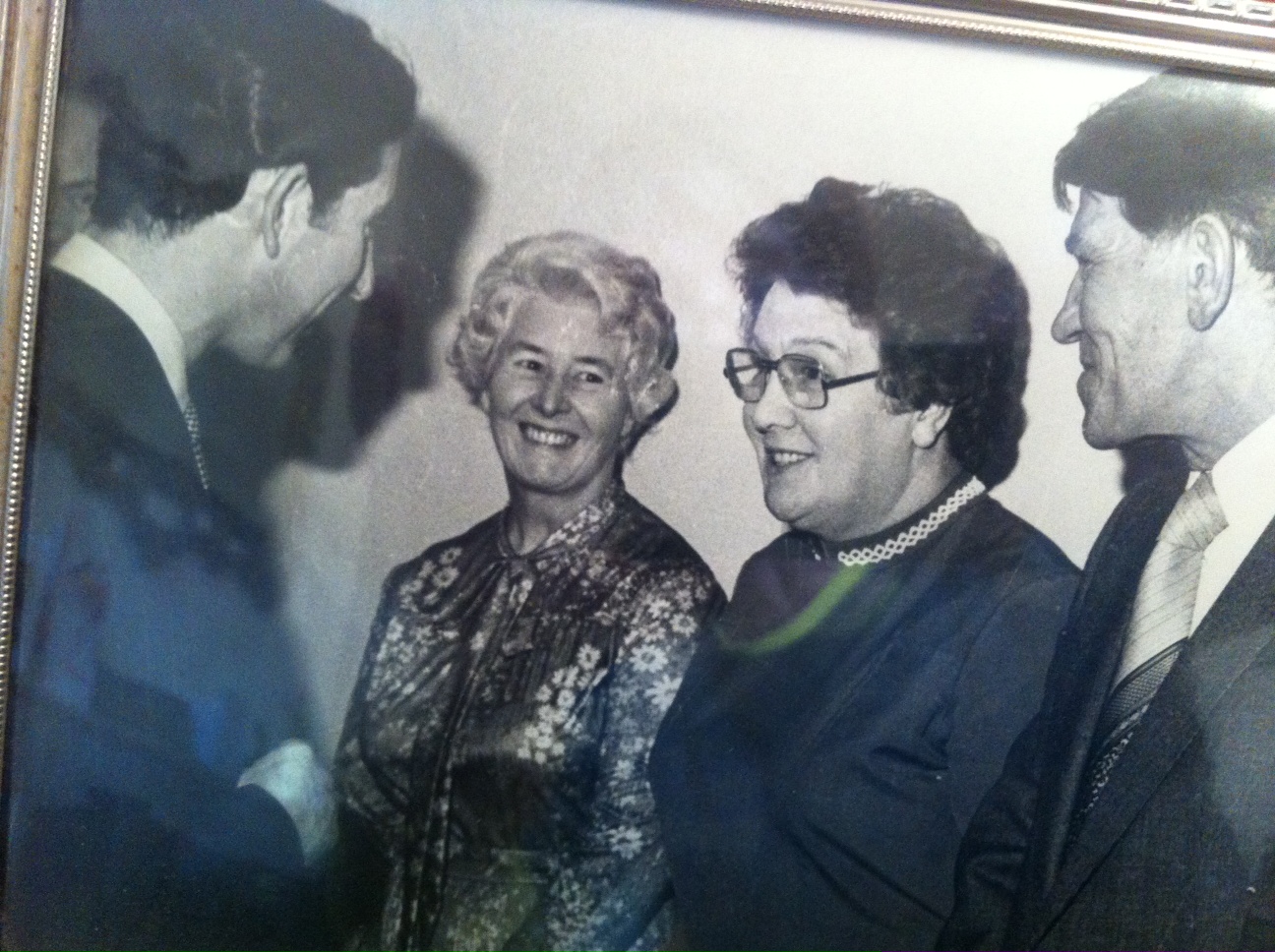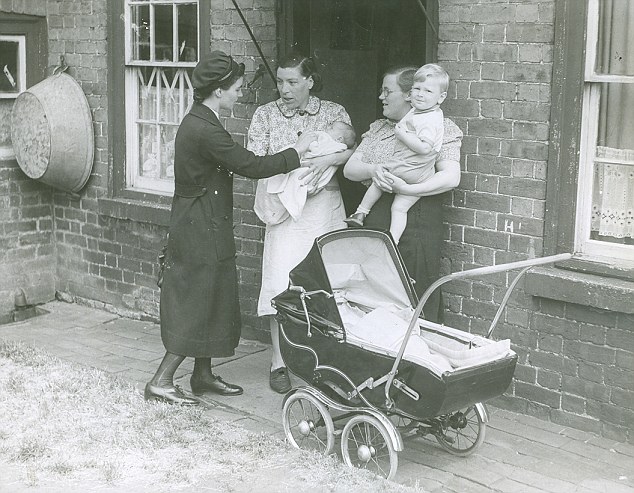'Who's got the pan?' A precious piece of midwifery history.
/'So, did you ride a bicycle when you worked in the community as a midwife?' asked Prince Charles. 'No! Not in Manchester. We couldn't as our wheels would go in the tram lines!' That was Miss Joan Fenton's answer when the Prince came to open the Edith Watson Maternity Unit in Burnley, in 1968.
Miss Fenton as she was fondly known when I worked at this same maternity unit in the 1970's, was the lovely 'Nursing Officer' described in my book, Catching Babies. She had (and still has!) the most compelling twinkling eyes, was strict but jolly, and she always called us by our surnames. I loved working under her leadership as a pupil midwife, and when newly qualified.
Joan Fenton is now 93. We haven't seen each other for more than 30 years, and became connected again when she read my book, by chance. I went to see her this week in her home; the same house I once collected her from when giving her a lift to work, in 1978. I had the most amazing two hours. We chatted about times gone by, and I asked her a few questions. Here's a small glimpse of what she told me.
'I began working as a nurse's help in 1936, when I was 16 years old. I had to leave my home, and live in the accommodation provided at the hospital. The hospital was at Lostock Hall in Preston and was a 'continuation hospital' where patients, mainly children, went to convalesce. I loved it. I remember my work involved cleaning only, there was no contact at all with patients! The Matron was strict, but we all respected her. When I was 18 I went to Wigan to do State Registered Nurse training. It was a four year programme in those days, and the first year was spent mainly in the sluice cleaning bed pans! ! It was never questioned, and felt like a real privilege. I also polished all the sliver and brass accessories in the sluice, bathrooms and kitchens. Student nurses didn't have contact with patients until the second year of training, and we looked forward to that moment with great excitement'.
'We worked 72 hours per week, starting at 6.30 until 8pm, and although we had two hours off in the afternoon one was spent having a lecture, and the other writing it up! We got a half day off only each week, but we had to be back at the nurses home by 9pm. We had to get special permission to go to the pictures to the 1st house, which was at 6pm. My salary was 5 shillings per week, £12 per year.'
'Once a month, on our half day, we were allowed to go home. My Mum used to wait at the train station for me, and we would be so excited to see each other. I had to be back by 9pm, so time was precious. She used to say "Let's go and get some Clifton's Chocolates!" They were expensive, and I knew my family couldn't afford them really, but it was our treat'.
'Once qualified, I went straight to St Mary's in Manchester to do my midwifery training. It was done in two parts; Part 1 was in the hospital (which was then actually opposite the Palace Theatre in Oxford Rd) and Part 2 was on the district. The areas I worked in was Ancoats and Beswick.
Joan saw it all. Extreme poverty, the blackouts of the Second World War, forceps being used at home, and a Caesarian Section being performed on the kitchen table. She told me of the lifesaving exchange transfusions that were carried out on Rhesus negative babies (before Anti D). 'Most women had their babies at home', she said, 'and there was no fear of birth. Women just got on with it, and birth was viewed as an every day event. There had to be a real necessity to do Caesarean Section, and women weren't rushed! I don't know what's happening these days, everyone's rushed!'
'Everyone helped each other, and there was no money. It was before the NHS of course and women had to pay for the delivery. Women having their first baby paid two pounds (because it took longer) and subsequent babies cost £1.10 shillings'. 'Did you get the money'? I asked. 'NO! Did I fiddle' Joan proclaimed 'it went to the authorities! I had a book, and collected the money every Monday morning. Some women couldn't afford to pay me, and I felt bad when I had to keep asking them for it. The poverty was bad. Families shared a pan (to boil the hot water for the birth) between three families. The first thing we said when we got to a house with a labouring woman was "Where's the pan?" We had to call the police to get it if it was in the night, we weren't allowed to disturb others without that authority.'
Image - Daily Mail
'I was so happy. I loved my job even though I was tired and hardly had any recreational time. We didn't get married because our job was everything to us. I lived and breathed it.'
When it was time to leave Joan, I asked her if she thought the 'Call the Midwife' programme was a good representative of those years. 'Oh yes!' she said. 'Although my time began much before that!' And it did. There won't be many more opportunities to capture these memories, and record the history of our midwifery profession.
I am delighted I had some time with you Joan. You are here forever now.




